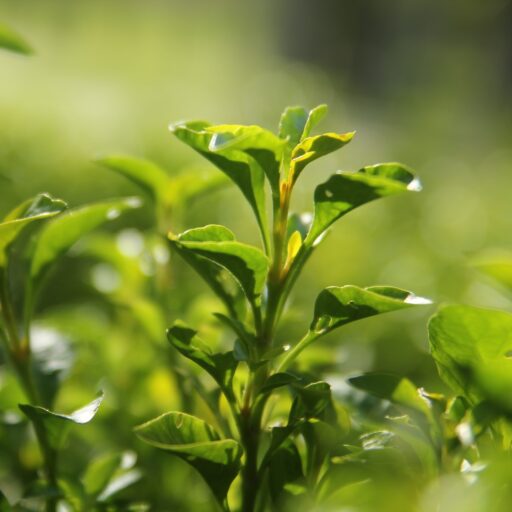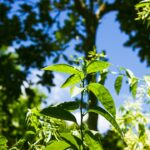Support our educational content for free when you purchase through links on our site. Learn more
Is the Charleston Tea Plantation the only one in the US? [2024]
Did you know that America has its very own tea plantation? Yes, it’s true! The Charleston Tea Plantation, located on Wadmalaw Island in South Carolina, is the only large-scale commercial tea plantation in the United States. But is it the only one? In this article, we’ll explore the tea-growing landscape in America and discover if there are any other tea plantations in the country. So grab a cup of tea and let’s dive in!
Table of Contents
- Quick Answer
- Quick Tips and Facts
- Background: The Charleston Tea Plantation
- Are There Other Tea Plantations in the US?
- The Artisan Tea Growers and Smaller Farms
- The Benefits of Tea Plantations
- Tea Plantation Techniques and Practices
- FAQ
- Conclusion
- Recommended Links
- Reference Links
Quick Answer
Yes, the Charleston Tea Plantation is the only large-scale commercial tea plantation in the United States. However, there are other artisan tea growers and smaller farms across the country that contribute to the tea-growing industry.
CHECK PRICE on: Charleston Tea Plantation
Quick Tips and Facts
- The Charleston Tea Plantation is located on Wadmalaw Island, South Carolina.
- The plantation grows tea bushes descended from plants brought to the Carolinas in the 1700s.
- It is owned by the Bigelow Tea Co. in partnership with third-generation tea taster William Barclay Hall.
- The Charleston Tea Plantation does not use pesticides, herbicides, or fungicides due to tea’s natural pest resistance from caffeine and tannins.
- Tea is harvested every 15-18 days, and its flavor is influenced by various factors like weather conditions.
- The tea leaves are dried on “withering box” screens for 18 hours and then macerated in a grinder before blending.
Background: The Charleston Tea Plantation

Just southwest of bustling Charleston, South Carolina, lies the Charleston Tea Plantation, the only large-scale commercial tea plantation in America. This picturesque plantation is situated on Wadmalaw Island, where the warm climate and sandy soil create the perfect conditions for growing tea.
The Charleston Tea Plantation has a rich history that dates back to the 1700s when tea plants were brought to the Carolinas. Today, the plantation is owned by the Bigelow Tea Co. in partnership with William Barclay Hall, a third-generation tea taster. Together, they have preserved and expanded the tea-growing tradition in America.
Are There Other Tea Plantations in the US?
While the Charleston Tea Plantation is the only large-scale commercial tea plantation in the United States, there are other tea plantations and farms across the country. These tea growers may not have the same scale of production as the Charleston Tea Plantation, but they play a significant role in the tea industry.
These smaller tea plantations and farms are often artisanal in nature, focusing on producing high-quality teas with unique flavors and characteristics. They may have a more hands-on approach to tea cultivation, allowing them to experiment with different varieties and techniques.
The Artisan Tea Growers and Smaller Farms
In addition to the Charleston Tea Plantation, there are several artisan tea growers and smaller farms in the United States. These tea enthusiasts are passionate about their craft and are dedicated to producing exceptional teas.
Some notable tea growers and farms include:
-
Hawaii Tea Factory – Located in Hawaii, this tea farm produces a variety of teas, including black, green, and oolong teas. The unique climate and volcanic soil of Hawaii contribute to the distinct flavors of their teas.
-
Great Mississippi Tea Company – Situated in Brookhaven, Mississippi, this tea farm is known for its commitment to sustainable and organic farming practices. They offer a range of teas, including black, green, and herbal blends.
-
Oregon Tea Traders – Based in Eugene, Oregon, this tea company sources its teas from various tea-growing regions around the world. They specialize in loose-leaf teas and offer a wide selection of flavors and blends.
These are just a few examples of the many tea growers and farms across the United States. Each one brings its unique flavors and techniques to the tea industry, contributing to the diverse tea culture in America.
The Benefits of Tea Plantations
Tea plantations, whether large-scale commercial operations or smaller artisanal farms, offer several benefits to both the tea industry and the local communities:
-
Job Creation – Tea plantations provide employment opportunities for local communities, supporting economic growth and stability.
-
Preservation of Tea Culture – Tea plantations help preserve the rich history and tradition of tea cultivation, ensuring that future generations can enjoy this ancient beverage.
-
Environmental Conservation – Many tea plantations prioritize sustainable farming practices, minimizing the use of pesticides and promoting biodiversity. This commitment to the environment helps protect natural resources and ecosystems.
-
Community Engagement – Tea plantations often engage with the local community through educational programs, tours, and events. This interaction fosters a deeper appreciation for tea and its cultural significance.
Tea Plantation Techniques and Practices
Tea cultivation requires specific techniques and practices to ensure the highest quality and flavor. Here are some key aspects of tea plantation management:
-
Plant Selection – Tea plantations carefully select tea varieties that are well-suited to the local climate and soil conditions. This ensures optimal growth and flavor development.
-
Pruning and Harvesting – Regular pruning helps maintain the shape and health of the tea bushes. Harvesting is typically done by hand, with only the top two leaves and a bud being plucked for processing.
-
Processing – After harvesting, the tea leaves undergo various processing steps, including withering, rolling, oxidation, and drying. Each step contributes to the final flavor and aroma of the tea.
-
Quality Control – Tea plantations have rigorous quality control measures in place to ensure that only the finest teas make it to market. This includes sensory evaluations, laboratory testing, and adherence to industry standards.
By following these techniques and practices, tea plantations can produce teas of exceptional quality and flavor, delighting tea enthusiasts around the world.
FAQ
How many tea plantations are there in the United States?
While the Charleston Tea Plantation is the only large-scale commercial tea plantation in the United States, there are several artisan tea growers and smaller farms across the country. These tea enthusiasts contribute to the tea industry and offer a diverse range of teas.
Read more about “Can You Grow Camellia Sinensis in the USA? …”
What is the only state in the US that grows tea?
South Carolina is the only state in the United States that has a large-scale commercial tea plantation, which is the Charleston Tea Plantation. However, other states, such as Hawaii and Oregon, also have tea growers and farms.
Read more about “What is the only state in the US that grows tea?”
What is the largest tea plantation in the United States?
The Charleston Tea Plantation is the largest tea plantation in the United States. It covers over 127 acres of land and produces a significant amount of tea each year.
Read more about “What is the largest tea plantation in the United States?”
What is the oldest tea plantation in the United States?
The Charleston Tea Plantation is also the oldest tea plantation in the United States. Its history dates back to the 1700s when tea plants were first brought to the Carolinas.
Conclusion
In conclusion, while the Charleston Tea Plantation is the only large-scale commercial tea plantation in the United States, there are other tea growers and farms across the country. These tea enthusiasts contribute to the tea industry and offer a wide variety of teas with unique flavors and characteristics. Whether it’s the Charleston Tea Plantation or one of the many artisanal tea growers, each tea plantation adds to the rich tea culture in America. So, the next time you enjoy a cup of tea, remember the hard work and dedication that goes into cultivating this beloved beverage.
Recommended Links
- CHECK PRICE on: Charleston Tea Plantation
- Shop Hawaii Tea Factory on: Amazon, Walmart, Etsy
- Shop Great Mississippi Tea Company on: Amazon, Walmart, Etsy
- Shop Oregon Tea Traders on: Amazon, Walmart, Etsy





